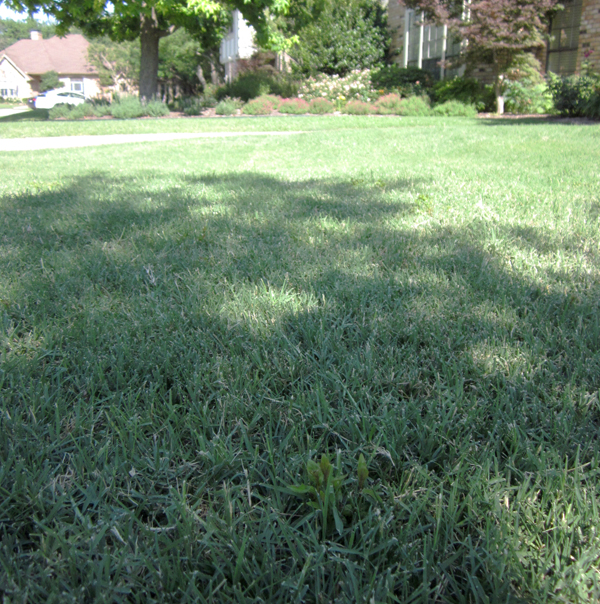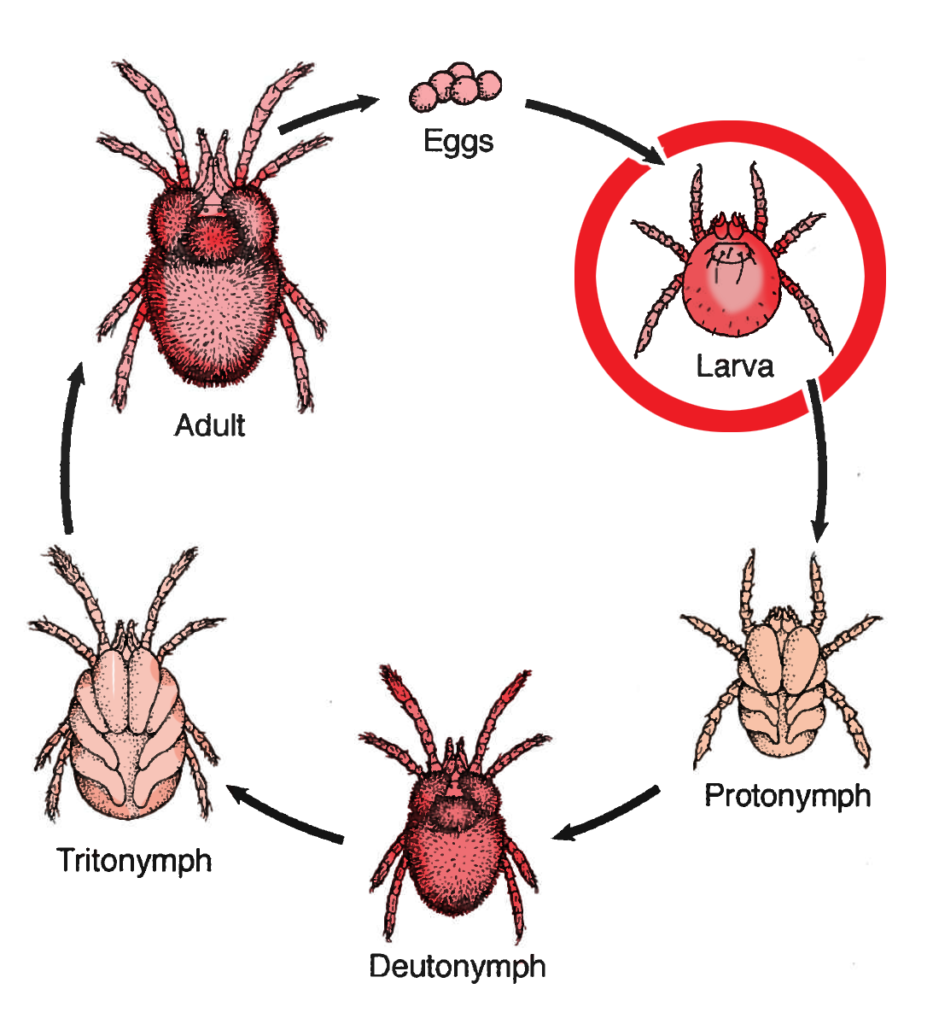
Does your lawn have chiggers? Keeping grass clipped short, use of a good repellent and proper use of insecticides can help.
If my phone calls are any indication, this appears to be a whopping chigger season. Don’t know what I’m talking about? You should count your blessings.
Chiggers are my personal worst nightmare. They are tiny mites, barely visible to the eye, that live on the soil surface and, in their larval stage, are parasites on humans and other vertebrate animals. Chigger bites itch terribly for 1-2 days, then slowly shrink to mildly itchy red marks that take 1 or 2 weeks to disappear. The only good thing I can say about chiggers is that, as far as we know, they don’t carry disease.
Bites typically occur in the most sensitive of places, especially around areas of tight clothing (belt line, sock line) and thin, sensitive skin (you can imagine where).
So why do chiggers seem worse this year? If I had to guess, I’d say it’s been our high humidity and above average temperatures the past month. Chiggers love hot and humid.
The most common places to encounter chiggers is in bramble patches, woods and fields with long grass. But in a year like this, chiggers can be a problem even in manicured lawns. Chiggers are often said to prefer shaded areas, but workers in our blazing-sun-drenched turfgrass plots at the Texas A&M AgriLife Center in Dallas have annual problems with chiggers beginning around late May and early June.
Your first protection against chiggers is a good repellent. DEET, our most popular mosquito repellent provides significant protection against chiggers. Dusting sulfur is a cheap and convenient alternative for some. Traditionally old-time Texans make it a habit to carry around an old sock filled with sulfur (in the pickup truck of course). When getting out of the truck they swing the sock against their shoes and lower legs to dust themselves before they set off to ride, roundup, plant, fix bob wire, or whatever else good Texans do these days.

The larval chigger (circled) is the only biting stage in the chigger life cycle. Larval chigger season runs from May through August in north Texas. Drawing modified from Mullen and Durden, Medical and Veterinary Entomology. Artist: Rebecca L. Nims.
Here are my three tips for self protection in chigger country:
- Use a good repellent, applying to your shoes, socks and pants legs before stepping into chigger danger.
- Tuck your pant legs into your socks to make it harder for chiggers to get in your pants and find the tender places.
- Scrub yourself well in the shower after you think you might have been exposed. Chiggers typically take several hours to settle down and begin feeding. If you can shower before they begin chowing down, you can reduce the number and severity of bites.
If you have chiggers in your lawn or backyard, consider using a liquid insecticide spray like bifenthrin. These sprays can significantly reduce chiggers. Before spraying, mow your lawn. This reduces humidity on that critical soil surface and makes it easier for sprays to contact the chiggers.
If your lawn is full of dandelions, clover or other flowers, make sure you spray for chiggers in the evening to avoid spraying pollinators, like honey bees, while they are foraging. Follow all label directions to avoid harm to good insects.
Good luck, and may the chiggers stay on the other side of the fence for you this year. For more information about chiggers, see our factsheet, E-365.